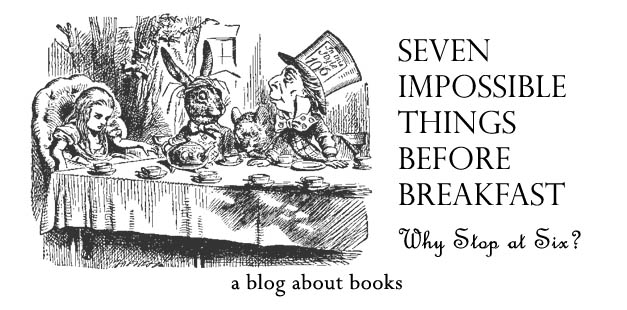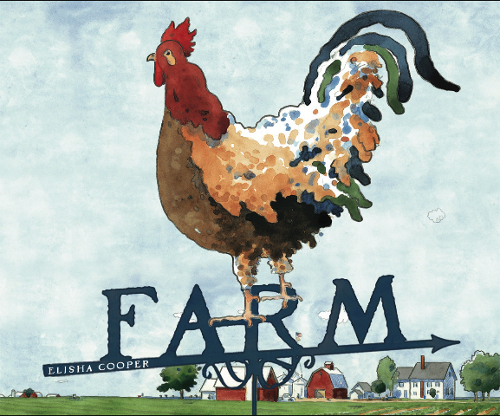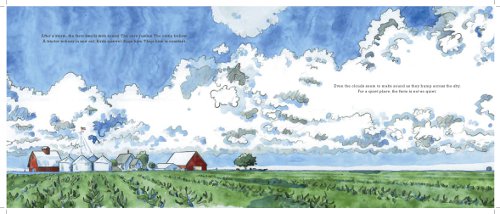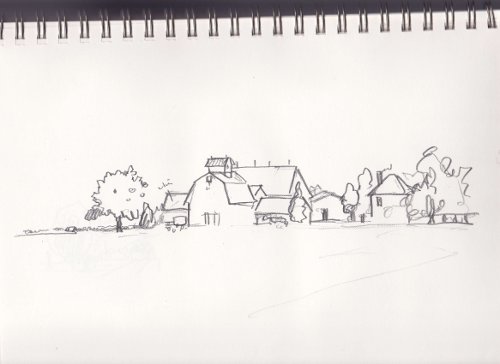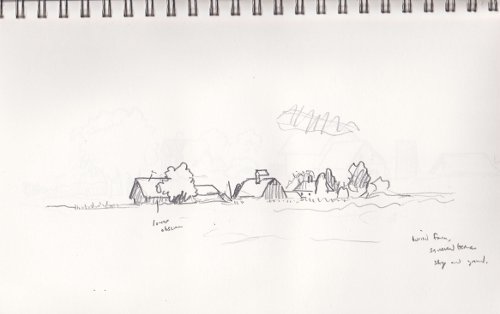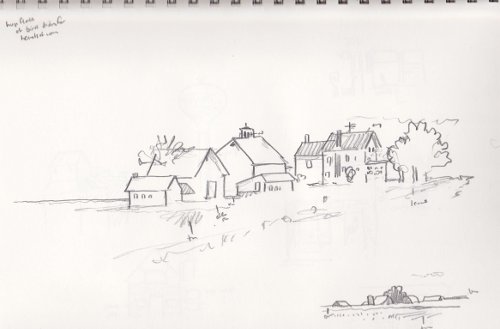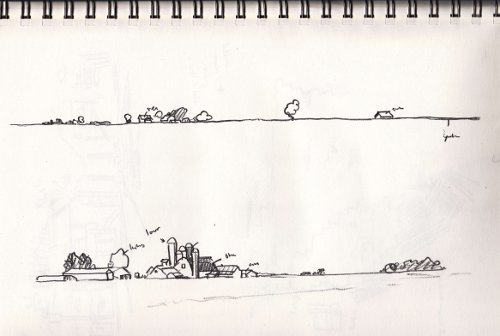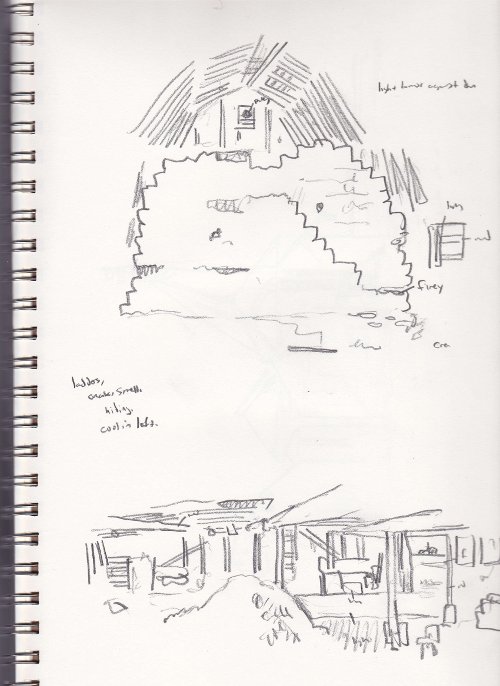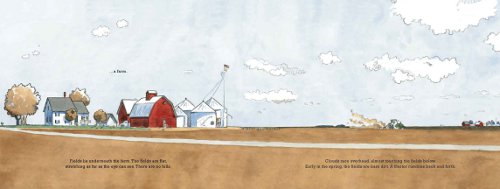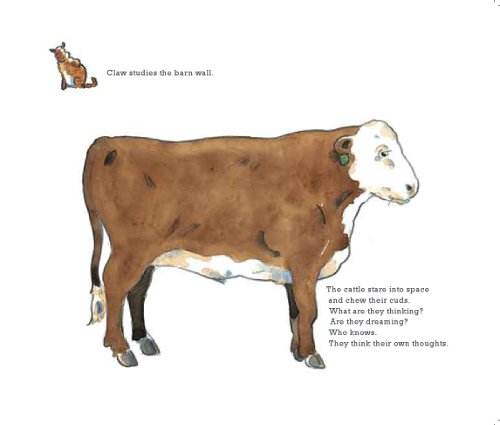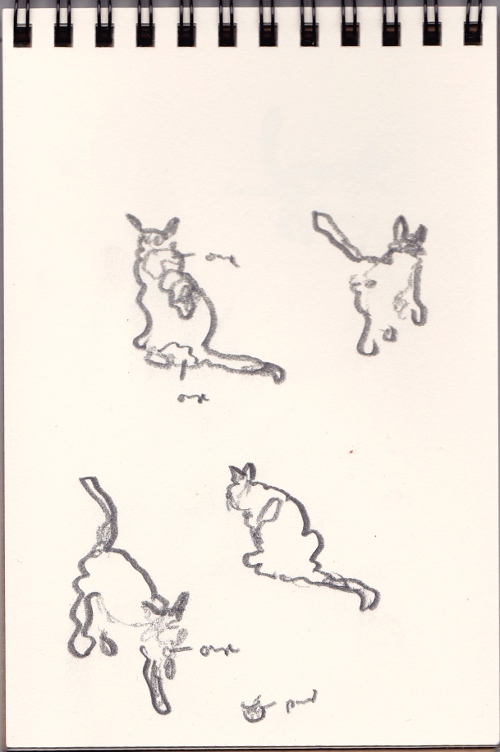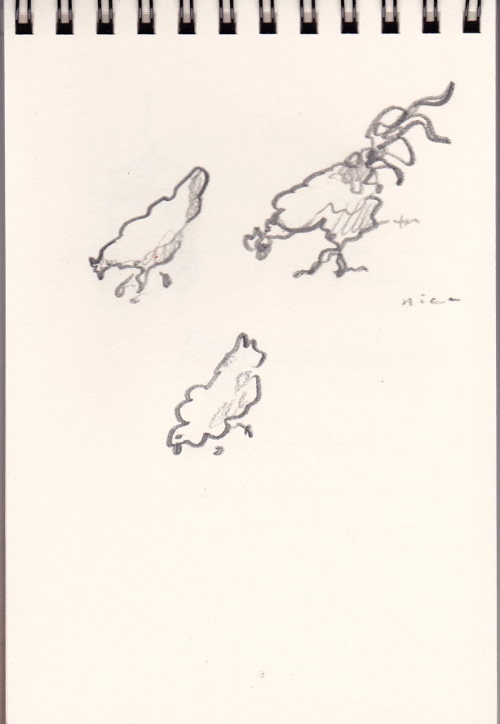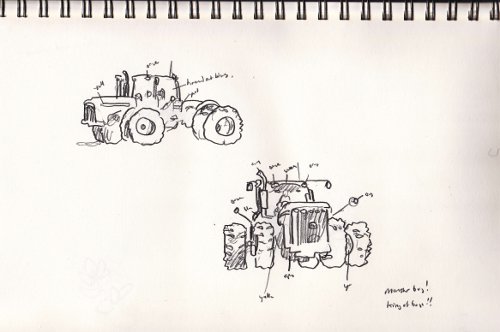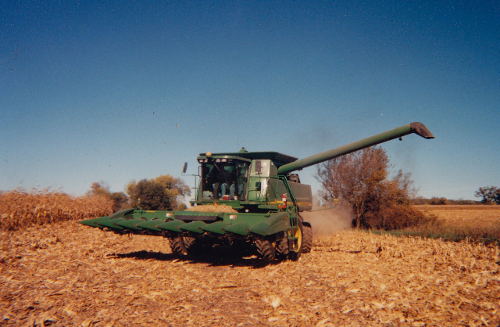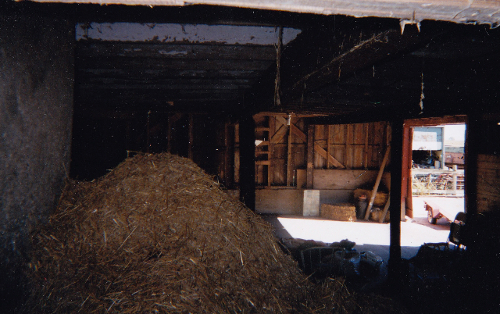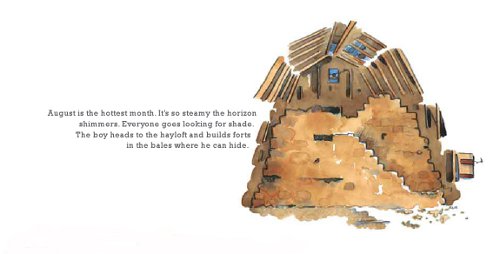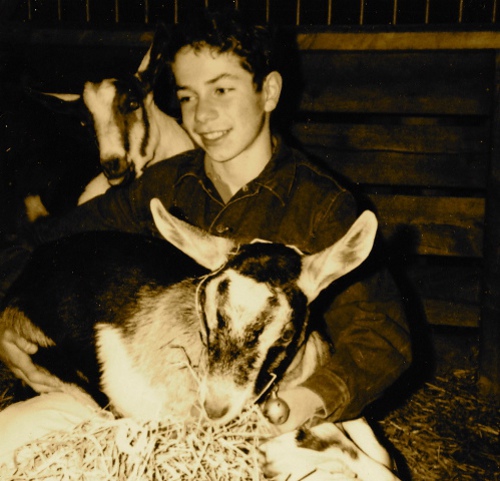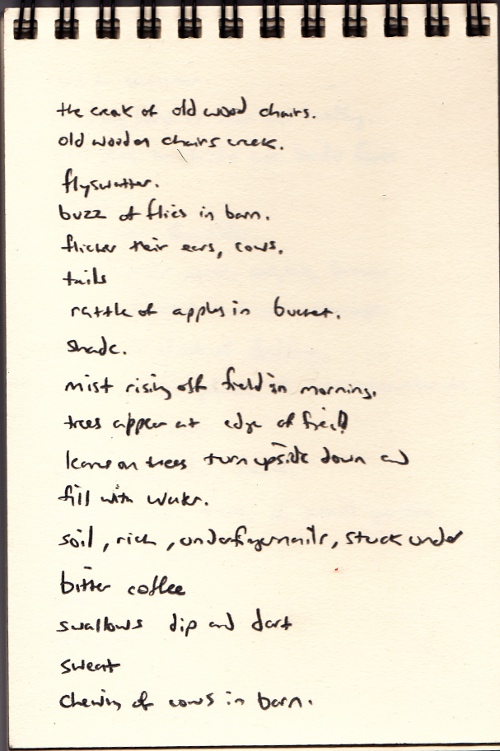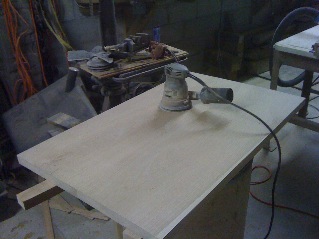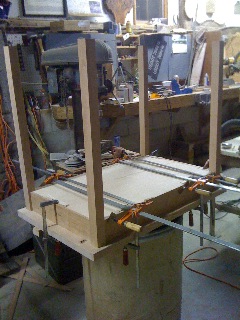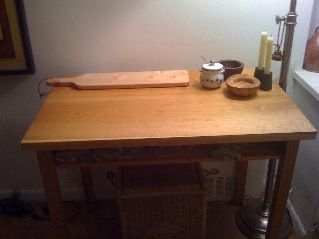Visiting the Farm with Elisha Cooper
By Jules
If I may say so myself, here’s dedication for you: I seem to have the rotten ‘ol stomach bug from which my husband suffered over the weekend. Since 90% of this post on Elisha Cooper’s brand-new picture book, Farm (released by Orchard Books in April), was already done before the unwelcome visitor arrived, I’m going to go ahead and post. Yes, it’s four a.m. (you know when you’re too sick to sleep properly?), and I sit here—barely vertical, since food is my sworn enemy right now—with my trusty laptop we’ll call…um…Trusty.
Now, I had planned for this introduction here to Elisha’s new book to be so eloquent and beautiful and pitch-perfect that you 7-Imp readers would say to yourselves, “Selves: Now, why in the big wide world won’t some professional review publication hire Jules to write for them?” It was going to be stupendous and awe-inspiring and leave you misty-eyed and perfectly nail this beautiful book.
No? Well, maybe one day.
For now, you’ll have to accept this humble introduction—and believe me when I say this picture book is worth your time. It is a detailed, intimate look at a contemporary farm, one that looks at modern family farms with a clear eye and with great reverence. It’s luminous is what it is. When I first got my review copy, I recall gasping lightly at that gorgeous cover. And spending about five minutes just taking in the colors and composition and all-around Elisha goodness. If the room weren’t spinning lightly, I’d do my usual bit in which I tell you what the professional reviewers have said about the book thus far, but you can hit a site like Barnes and Noble (my favorite for compiling reviews clearly in one spot, though supporters of independent bookstores should know I always link to IndieBound when I can).
Elisha visited me in 2008 at this breakfast interview. I invited him back to the 7-Imp bungalow, this time to ask him a few mostly impossible questions about this newest title of his. So, won’t you join us for a look at this book, including some art and early sketches? Just don’t get too close to me. And, for crying out loud, bring the disinfectant wipes for your hands and such.
The last thing I’ll say before I fall over and attempt to get more sleep? You’ll see below that Elisha tells us, “I think we pass by so many things. Writing about farms was a chance to slow down and take a closer look at what’s under our noses.” That, my friends, is something he has accomplished with this book.
Here’s Elisha, and I thank him for stopping by.* * * * * *
7-Imp: I suspect authors sometimes hate to be asked about “inspiration,” but can you tell me what brought on this particular book idea?
Elisha: I actually love those moments of inspiration and usually I remember them. This time I don’t quite. (I’m getting older…what was the question?)
In any case, there probably were many inspirations for Farm. I grew up on a farm. I loved driving out from Chicago past these wide flat Illinois farms. I’d just read Michael Pollan’s The Omnivore’s Dilemma.
So, when I went for a walk through SoHo with my editor, the subject of farms must have been in the back of my head. We were playing with ideas for a book after Beach (we were also going to my editor’s friend’s store to buy me a shirt, one with a collar, as my editor was trying, unsuccessfully, to raise the level of my style). So, we walked and looked at shirts and talked about ideas, west on Prince, south on Thompson, back up Broadway. I think on the corner of Broadway and Spring we settled on this farm book.
The idea felt sticky to me, because…well, farms are sticky. I also felt that children’s books romanticize farms (with the exception of Charlotte’s Web, which is romantic, but also real) with their cute pigs and red tractors. I knew the reality would be much more interesting.
From Elisha’s sketchbook:
(Most of these images are linked to larger versions; click to enlarge.)
7-Imp: Tell me about the making of this book.
Elisha: After flying back to Chicago, I started driving around DeKalb County. I drove along straight county roads, pulling over to draw fields, tractors, barns. I knocked on doors. At one farm, while I was talking with the farmer, his barn cats crawled through the open door of my car and started playing—a detail I used in the book. I returned to this man’s farm in Hinckley, a bunch of times. In the Fall, I flew out for the harvest and rode his combine harvester.
I think we pass by so many things. Writing about farms was a chance to slow down and take a closer look at what’s under our noses.
(Click to enlarge.)
7-Imp: Are there specific experiences that formed the essential basis, the fundamental building blocks, of your artistic vision? Books, movies, artists, events, images, anything else, etc….?
Elisha: That’s too broad! Impossible to answer. Because how do any of us know what combination of building blocks we’re made from?
But I do know I grew up around animals. I loved van Gogh paintings. I loved Hemingway. The spareness of his sentences. I grew up rooting for the Pittsburgh Steelers. (The incomparably beautiful Lynn Swann inspired me to play receiver.) I loved traveling, and my parents allowed me that.
My parents also gave me a love for beauty — in its broadest sense. And a love for goats.
7-Imp: What do you, as an artist, find most challenging and satisfying in the creative processes you employ?
Elisha: Oh, goodness. Another impossible question! My creative process isn’t challenging, not really. It’s creative, after all. And what could be more joyful than that? Not that it doesn’t present difficult choices, or can’t be work. But, challenging? No. Challenging is raising my children (something I also love doing, though sometimes I forget that at 7:42 on a Tuesday morning).
I would say that the challenge lies in what is beyond my control: throwing a book out into the world and hoping it will stick. Will Farm stick? I hope so. So, things like this interview are challenging.
But the actual making of the book is intensely intensely satisfying. From sketching to writing to painting to designing. It’s something I’m lucky to be doing. I try not to forget that.
7-Imp: What’s next for you? What books/projects are you working on now, if you can talk about them?
Elisha: I’m focused on Farm. But, like the seasons, that will change. I have a book coming out this summer called Beaver is Lost. It has no words. Actually, it has four words. It’s fun, I hope. A beaver from the country gets lost in the city (based on Chicago) and must find his way back home. He’s a resolute little guy.
Other projects, which I can’t talk about! I went for another walk with my editor recently, this time along the Hudson, and we came up with a few ideas.
But what I’m really excited about now? Wood! My brother lives on a farm in Massachusetts, which has a wood shop. Last Winter, we built a kitchen table. (He built it, I stood around, sanded the top, and said encouraging things.) This year we built an end table. We made bowls. (He has a lathe.) And we made cutting boards, which I’ve been sanding on our balcony here in Manhattan (I’m learning that using power tools late at night in the city will draw the attention of ones’ neighbors) and mailing to friends. Okay, I’m wood-obsessed.
* * * * * * *
Farm by Elisha Cooper © 2010. Published by Orchard Books, an imprint of Scholastic, New York, NY. All images and sketches and art work used with permission of the author.
Founder/Publisher/Editor: David McGee
Contributing Editors: Billy Altman, Laura Fissinger, Christopher Hill, Derk Richardson
Logo Design: John Mendelsohn (www.johnmendelsohn.com)
Website Design: Kieran McGee (www.kieranmcgee.com)
Staff Photographers: Audrey Harrod (Louisville, KY; www.flickr.com/audreyharrod), Alicia Zappier (New York)
E-mail: thebluegrassspecial@gmail.com
Mailing Address: David McGee, 201 W. 85 St.—5B, New York, NY 10024

